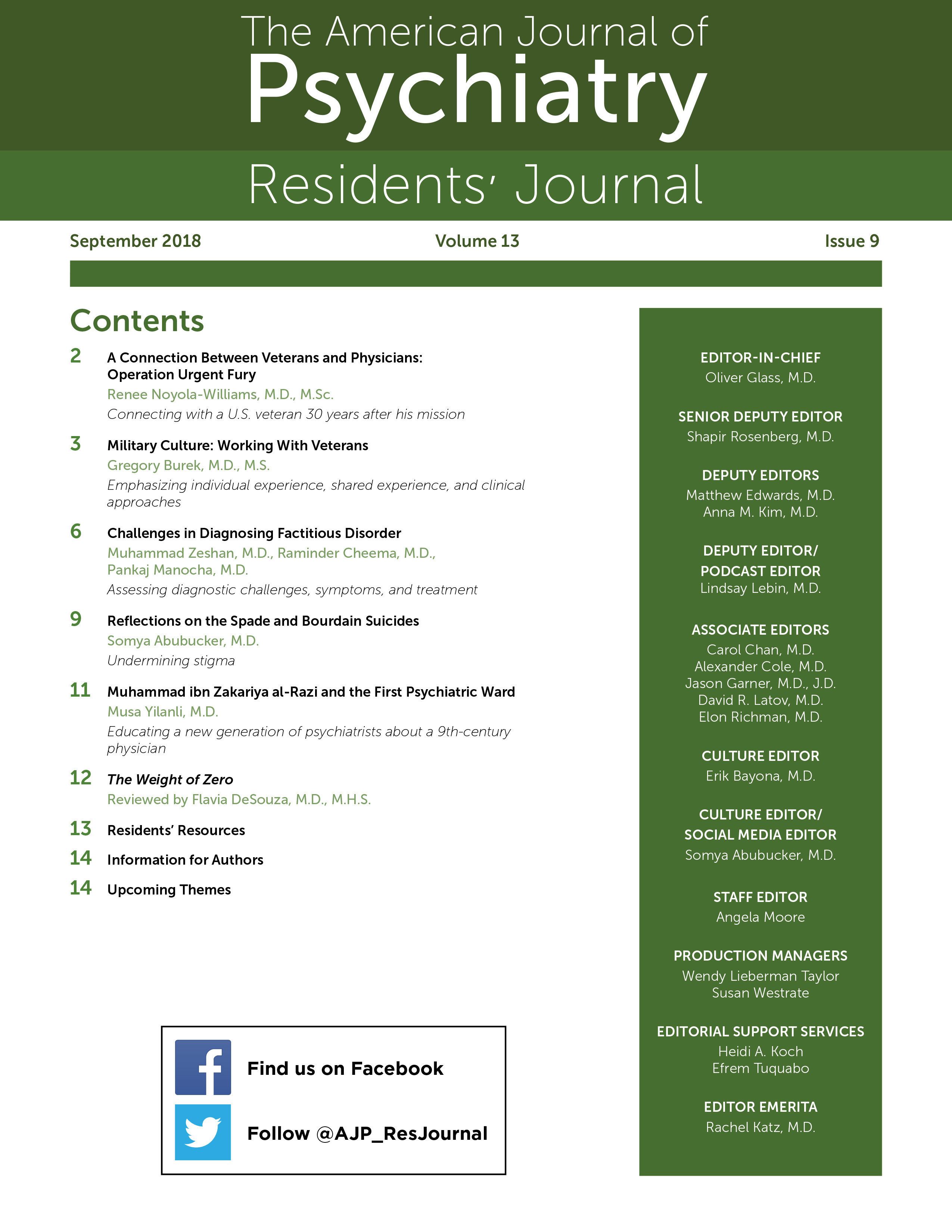When I was a third-year psychiatry resident, my training at the Fayetteville Veterans Affairs Medical Center incidentally placed me in contact with U.S. veterans who were deployed to the Caribbean island of Grenada for Operation Urgent Fury in 1983. These were unique patient encounters because of my own connection with this island as an alumna of St. George’s University School of Medicine in Grenada.
During Operation Urgent Fury, U.S. military forces had a mission to invade Grenada, secure the area, evacuate American medical students, and rescue Grenadian hostages following a violent political coup. At the time, it was considered to be the largest deployment of U.S. servicemen after the Vietnam War. Unfortunately, 19 U.S. troops were killed in action, and 116 were wounded (
1).
My first encounter with people directly affected by this historical event was as a medical student in Grenada. I attended a fundraiser for Friends of the Mentally Ill and met a Grenadian attendee whose life had been affected by the political instability decades ago. He was quiet and polite but still living with judgment from others. This was my first time getting to know local Grenadians, but by unforeseen circumstances it would not be my last encounter with the people affected by the political events of the early 1980s.
One day while working at the Fayetteville Veterans Affairs Medical Center outpatient clinic, I was interviewing a veteran who when asked about his military experience began describing his role during the invasion of Grenada. It was an unexpected moment that caught me off guard. When I moved to Fayetteville,
it never crossed my mind that I might treat a patient who had been deployed to Grenada. Knowing that it can be difficult for veterans to talk about their military experiences, I did not interrupt him. He spoke without knowledge that I was a graduate of the same medical school that his mission had targeted. At the end of his visit, I thanked him for his service. It was the easiest thank you I have ever given to a veteran, yet it felt like an inadequate gesture. Sharing personal information with a patient is always a delicate matter. However, in this case, out of sheer gratitude, I shared the connection to Grenada that I had initially withheld; it was a pleasant revelation for me, and I thought that he might agree.
At first, he was quiet and perplexed, but this was followed by a smile. We simultaneously reached the same conclusion: that the doctor now treating him directly benefited from his bravery more than 30 years ago. It was a surreal moment for both of us. Seldom do veterans get to see the tangible outcomes of their efforts overseas. I wanted him to know at least one of the everlasting impacts of that mission. I shared with him that St. George’s University School of Medicine continues to graduate hundreds of medical doctors every year, with more than 15,000 practicing physicians. I was the first alumna he had met, and he expressed his gratitude for sharing these details.
For me, this was an unforgettable encounter because I realized, for the first time, that these moments of connection enrich the lives of veterans as well as the lives of those who work with them, beyond what any medication can do.
